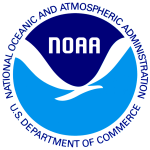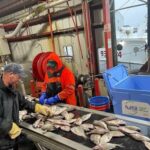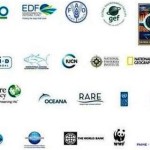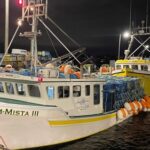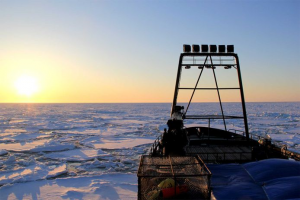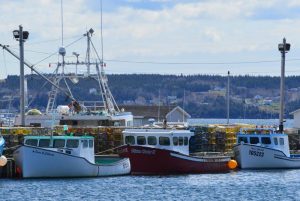Category Archives: South Atlantic
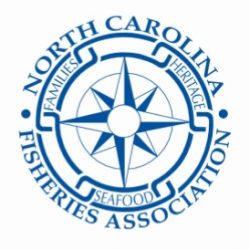
North Carolina Fisheries Association Weekly Update for January 31, 2022
Over the last few weeks, we’ve been taking a close look at a few, of the many, false claims, regarding the management of the southern flounder fishery, made by the NC Wildlife Federation. This week we’ll be looking at one of the most audacious statements they’ve made to date. The Wildlife Federation claims that “Amendment 2 is the first known effort to effectively reduce harvest in the commercial southern flounder fishery in history. Continue reading at the update. >Click here to read the Weekly Update<, to read all the updates >click here<, for older updates listed as NCFA >click here< 10:03
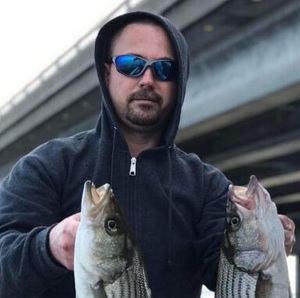
Commercial Fisherman Dusten William Abbott of Manteo, N.C, has passed away
Dusten William Abbott, 40, of Manteo, N,C, passed away suddenly Thursday, January 27, 2022. Dusten was born September 30, 1981 in Edenton, NC. He was the son of Ray Abbott, Sr. and Michelle Congleton. Dusten had great love for being on the water. He grew up beach fishing with the whole family. Dusten’s love of fishing led him to become a commercial fisherman. He did everything from long lining to working on trawl boats. But most of all, he was always ready to go shrimping, which he enjoyed tremendously. Dusten had a heart of gold. >click to read< 17:14
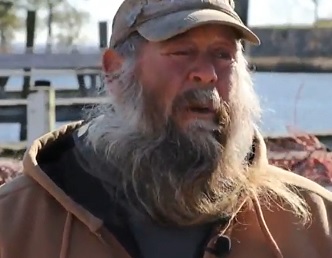
North Carolina fishermen pull up lost crab pots in effort to clean up the coast
On a cold and blustery morning, Keith Bruno, a commercial fisherman from Pamlico County, loads up his boat and heads out. Today, he’s not looking for his typical catch. That’s because he’s searching for lost crab pots. “By daybreak, maybe a little before, we get the boat ready,” Bruno said. “We’ll put the boat in the water and immediately start searching.” This year is Bruno’s seventh year being a part of the North Carolina Coastal Federation’s (NCCF) lost fishing gear recovery program. video, >click to read< 15:45

North Carolina Fisheries Association Weekly Update for January 24, 2022
I hope everyone took the time to read the “Saga of Southern Flounder” article, from the North Carolina Wildlife Federation. If not please click the link below and read it for yourself before continuing to read my comments. After reading the Wildlife Federations article, I’m sure you were shocked by their strong claims of (mis)” management” bias towards the commercial fishery, failed commercial management, and harsh recreational reductions. Continue reading at the update. >Click here to read the Weekly Update<, to read all the updates >click here<, for older updates listed as NCFA >click here< 09:25
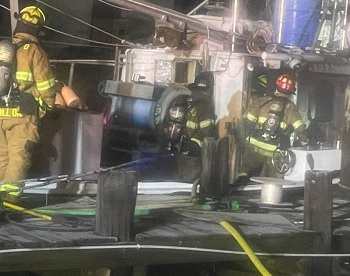
Commercial fishing boat catches fire in Wanchese Harbor
No injuries were reported following a fire early Sunday morning aboard an (unidentified) commercial fishing vessel docked in Wanchese. Crews from Roanoke Island Volunteer Fire Department were called to a dock across the harbor from Wanchese Marine Industrial Park in the 4300 block of N.C. 345/Mill Landing Road just after midnight. When crews first arrived from Roanoke Island Volunteer Fire Department, heavy smoke was showing from the boat. photos, >click to read< 19:37
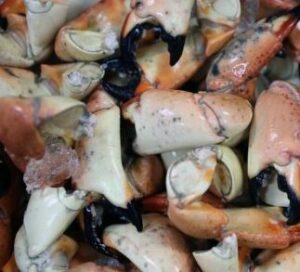
Couple Arrested for Stealing $2.5M from Keys Commercial Fishermen
A Miami couple was arrested in Miami-Dade County Friday on warrants related to the theft of an estimated $2.5 million from a Stock Island fish house and multiple commercial fishermen. Marianela Armenteros, 40, was charged with multiple counts of grand theft over $100,000. Yamir Gonzalez-Betancourt, 49, was charged with one count of grand theft over $100,000. Both suspects worked for a fish house on the 6000 block of Peninsular Avenue owned by the Valero-Duran Corporation. Armenteros worked as a general manager, while Betancourt was the assistant general manager. >click to read< Photos at this artice, >click to read< 15:18
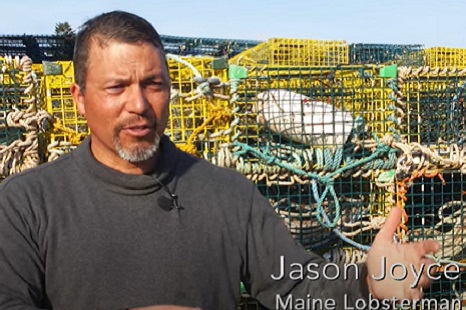
Video: Save the Gulf of Maine – The Maine Reset
Upcoming documentary scrutinizes plans to industrialize the Gulf of Maine and highlights the perspectives of the Mainers most affected. At the foreground of the conversation are Maine lobstermen. In later episodes, scientists and ecologists also weigh in. The result is a thought-provoking primer on an issue that could result in the fundamental transformation of the State of Maine. >click to watch<, 17:36 It’s only the beginning! You can support this project at www.igg.me/at/ProtectMaineWaters – Please, also watch the first video installment of >Road to Disaster – Voices of Maine Lobstermen, click here<

North Carolina Fisheries Association Weekly Update for January 17, 2022
The issue of Southern Flounder management, or mismanagement as some have claimed, has been a hot topic lately. Claims that commercial overharvest, imminent stock collapse, failed commercial harvest reductions, and inaction by the state are to blame for declining catches of Southern flounder are rampant. But are they true? If you asked the CCA or NC Wildlife Federation the answer would be yes but if you asked me, I’d say their claims are absurd and not supported, by the numbers. Continue reading at the update. >Click here to read the Weekly Update<, to read all the updates >click here<, for older updates listed as NCFA >click here< 10:33

North Atlantic Right Whale: Extinction Is Looming. Everyone’s Fighting.
This May, new rules created for the lobster industry by the National Marine Fisheries Service will become official policy for boats operating in right whale territory. The agency estimates that lobster and Jonah crab traps are responsible for 95 percent of vertical end-line ropes in the areas where whale protections apply and therefore pose the most risk for entangling whales. The Fisheries Service says these changes will reduce the risk of death and serious injury by 69 percent. But in the months after the rules were finalized, the agency has seen pushback from conservation groups, who argue the new protections aren’t enough, and lobster fishing crews, who say the rules will harm their business. >click to read< 14:22
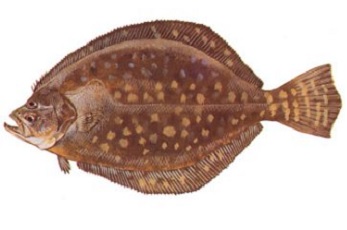
North Carolina: Southern flounder amendment going to advisory committees, DMF seeks comment
State fisheries managers are proposing more changes to southern flounder regulations to reduce flounder removals by 72%. The proposals include phasing out anchored, large mesh gill nets from the fishery. However, N.C. Division of Marine Fisheries staff want public and advisory committee input before they make any recommendations to the N.C. Marine Fisheries Commission. To continue reducing removals, the draft Amendment 3 contains a suite of additional proposed management options. Michael Loeffler said while phasing out the gill nets may reduce landings, the effect on both the economy and the fishery are uncertain. (I think we already know), >click to read< 15:00

North Carolina Fisheries Association Weekly Update for January10, 2022
What the Wildlife Federation isn’t telling you about shrimp trawling in NC! Like the Coastal Conservation Association (CCA), the North Carolina Wildlife Federation has very strong opinions about commercial fishing, especially the use of gill nets and shrimp trawls to harvest seafood. They consistently provide their perspective on these issues to the public, and as I pointed out last week, they specialize in playing it fast and loose with the facts. I’ll certainly be providing you with more examples of the deception in the coming weeks. (continues) >Click here to read the Weekly Update<, to read all the updates >click here<, for older updates listed as NCFA >click here< 09:31
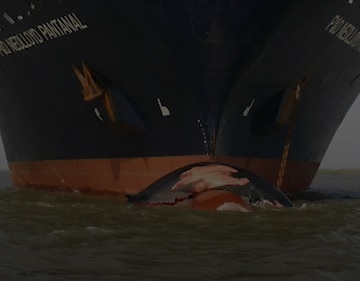
Ship strikes may be the difference between extinction and survival for whales
Ship strikes pose a serious threat to whales and have the potential to cause highly endangered subspecies to go extinct. The remaining 1.3 million whales left in our oceans are facing an increasing amount of shipping traffic when coming to the surface and travelling to their feeding or breeding areas. Global maritime traffic increased fourfold between 1992 and 2012. In some corners of the world, such as the Arctic, it actually doubled between 2013 and 2018. The number of whales, in the meantime, is on the decline. >click to read< 07:43

NOAA/DFO Officials on Risk Reduction and Protections for North Atlantic Right Whales
In December, NOAA Fisheries held another productive biannual engagement with officials from the Department of Fisheries and Oceans Canada to discuss ongoing efforts by both countries to protect and recover North Atlantic right whales,,, While this was the last of the 2021 biannual meetings with Canada on this topic, it was my first as the Assistant Administrator for Fisheries. Both of our countries face the same challenge >click to read<,-Read about her background, >click here< 10:53
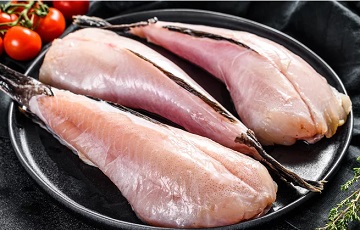
Everything You Need To Know About Monkfish
Monkfish certainly isn’t the prettiest fish in the sea. For everyone from the monkfish novice trying to get past its unseemly appearance to the aficionado looking to deepen their knowledge of the delicious groundfish, this guide is the perfect one-stop source. Learn to source and choose monkfish, store it properly, and serve it in recipes that will have your guests grinning from ear to ear! Unlike many other white fish, monkfish boasts no small bones. As such, monkfish is easy to prepare, and many fishmongers sell it as ready-to-cook steaks or fillets. Photos, also, scroll the page for lobster and beef! >click to read< 17:21
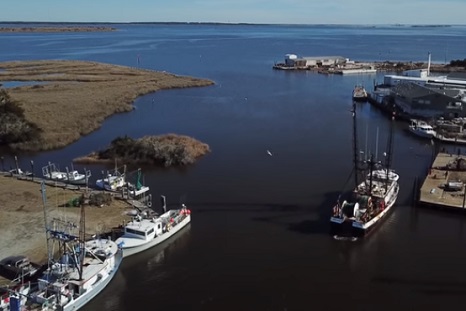
Safeguarding the Outer Banks’ commercial fishing heritage by supporting the livelihoods of local fishermen
Dare County has released a video titled, “Dare County’s Commercial Fishing Industry: Safeguarding the Community’s Longstanding Heritage by Supporting the Livelihoods of Local Fishermen,” as part of the county’s ongoing effort to inform members of the public as well as state and national legislators about the impact that increased regulation is having on the those who work within the commercial fishing industry. >Video, click to read< 10:11
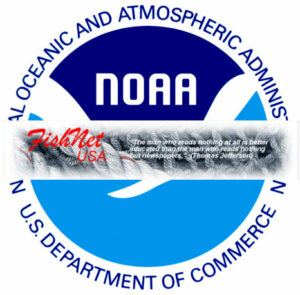
Fisheries management isn’t supposed to be robbing Peter to pay Paul
MAFMC and ASMFC Approve Changes to Commercial and Recreational Allocations of Summer Flounder, Scup, and Black Sea Bass,,, For all three species, these changes result in a shift in allocation from the commercial to the recreational sector. At the same time, using the same “scientific” rationale to disguise what seems nothing more than a blatantly political decision, the Gulf of Mexico Fishery Management has recommended that the red grouper fishery also be reallocated,,, If NOAA/NMFS is allowed to continue using the new MRIP Fishing Effort Survey, every mixed use fishery from Maine through Texas should expect attempts at quota allocation shifts from the commercial to the recreational sector. >click to read< By Nils Stolpe/FishnetUSA 13:52
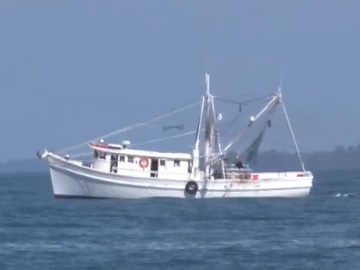
Georgia shrimping season to end
The 2021 commercial and recreational shrimping season officially comes to an end Friday night in Georgia. That affects shrimping operations from the coastline to three miles out to sea. Pat Mathews has operated Lazaretto Packing for decades. Over the years he’s seen the fleet of shrimp boats that pull up to his dock dwindle as operation costs increase faster than the price of shrimp, forcing many owners out of the business. For those captains able to stick around, less competition off Georgia’s coast means more shrimp for them. Video, >click to read< 10:16
Merry Christmas. Peace on earth, good will toward fishermen
 To those that are gone, and there are so many, you are thought of with sadness, reverence, and awe. “It Just ain’t Christmas Without You”. >Click to listen<
To those that are gone, and there are so many, you are thought of with sadness, reverence, and awe. “It Just ain’t Christmas Without You”. >Click to listen<

The Biggest Corporate Welfare Recipients Ever: Big Wind and Big Solar
How much do solar, wind and electric vehicle companies get in federal handouts and tax loopholes in President Joe Biden’s Build Back Better bill? Well over $100 billion in taxpayer largesse. If all the tax credits are included, that number could reach half a trillion dollars. No other industry in American history has ever received this lucrative paycheck. The folks at the Institute for Energy Research calculated that this is on top of the more than $150 billion in subsidies these industries received from Uncle Sam in the last 30 years. The umbilical cord to taxpayer wallets never gets cut. Yet, laughably, the left says all these subsidies to “green energy” are necessary for an “infant industry.” >click to read< 11:13
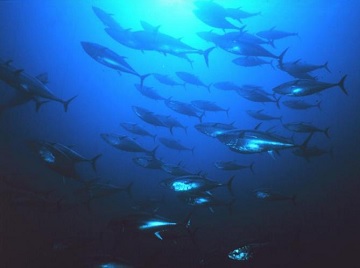
What’s on the line? Atlantic bluefin tuna
The Atlantic bluefin tuna season ranks high enough up on the fishing world calendar that the fish even has two of its own television shows. This species is one of the largest open ocean migratory species of finfish found in the northwest Atlantic. Many fish are caught weighing well over 1,000 pounds and measuring 8 feet or more in length. In North Carolina, the Atlantic bluefin tuna can be found year-round at varying degrees of availability, but are usually the most plentiful from January through March and into April off the Outer Banks, and November through December, with fish numbers increasing in October. >click to read< 11:57
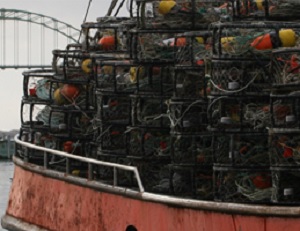
Commercial Fishing Safety on the West Coast
In 2009, NIOSH completed an in-depth study of commercial fishing fatalities in the United States for the decade spanning 2000-2009. The purpose of the study was to identify the most hazardous fisheries around the country and to describe the unique safety issues in each. For this study the US was divided into four fishing regions: Alaska, West Coast, East Coast, and the Gulf of Mexico. The results of this analysis for the West Coast region can be found in the document,,, >click to read< 13:18
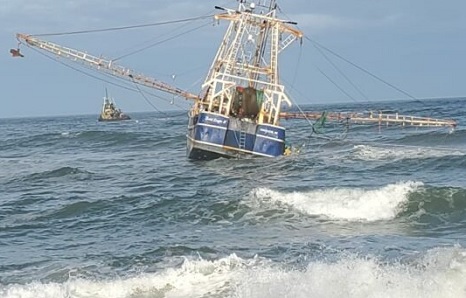
F/V Bald Eagle II: Shrimp trawler hauled off the beach, now under tow
After sitting on the edge of the surf off Southern Shores for the last eight days, F/V Bald Eagle II returned to the sea thanks to a salvage tug from Charleston. The bow of the Bald Eagle II has been turned back into the waves as the tug John Joseph pulls a braided tow rope, while an excavator digs sand out from under the stern to help refloat the vessel. Photos, Video, >click to read< 16:31

North Carolina Fisheries Association Weekly Update for December 10, 2021
Legislative updates, Bill updates, Calendar, >Click here to read the Weekly Update<, to read all the updates >click here<, for older updates listed as NCFA >click here< 08:03

Not Right: Offshore Wind Farm Turbines Threaten Endangered North Atlantic Right Whales
The next wind industry victim appears to be the endangered Atlantic Right Whale, which already has plenty of offshore industrial activity to contend with. But oil and gas extraction, international shipping, and commercial fishing have obvious embodied economic benefits. Whereas, the only economic benefit derived from wind power is the subsidies it attracts. No subsidies. No wind power. It’s that simple. So, if a bunch of crony capitalists and their apologists get their way, get ready to kiss goodbye to the Atlantic Right Whale.,, What a pro wind power scientist says. Mark Baumgartner, a senior scientist and marine ecologist at Woods Hole Oceanographic Institution, said in a phone interview that he understands vessel activities and associated construction can seem alarming, but said he doesn’t “envision a lot of impact” on the right whale from wind farms. [he clearly hasn’t given it a second’s consideration, but why would he?]. >click to read< 12:31

F/V Bald Eagle II: Coast Guard oversees fishing vessel salvage near Duck, N.C.
The Coast Guard is overseeing the salvage and removal of a fishing vessel, Friday, that became grounded near Duck, N.C. On December 7, 2021, the Coast Guard rescued four fisherman from the disabled fishing vessel F/V Bald Eagle II off the North Carolina coast. The Coast Guard is working with the vessel owner and in coordination with state and local partners to mitigate impacts to the environment after the vessel ran aground near Southern Shores. The owner is continuing efforts to salvage the vessel and is working with an Oil Spill Removal Organization to safely remove the 5,000 gallons of diesel fuel on board. The cause of the grounding is currently under investigation by Coast Guard Sector North Carolina. -USCG- 21:30
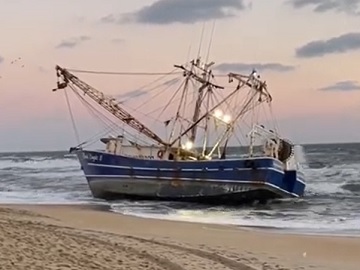
Still stuck – No luck moving grounded shrimp trawler
Crews have still had no luck moving a Wanchese shrimp trawler that has been in the breakers off in Southern Shores since grounding earlier this week,,, F/V Bald Eagle II, a 78-foot-long steel hulled trawler, first ran into engine trouble Tuesday around 7:30 a.m. and then a net snagged the propeller, the crew dropped anchor but were unable to prevent the vessel from reaching the shoreline off Dogwood Drive. A salvage team and another Wanchese-based trawler tried to refloat the vessel during high tide overnight, but the tow rope broke, and their efforts were for naught. Video, photos, >click to read< 13:41
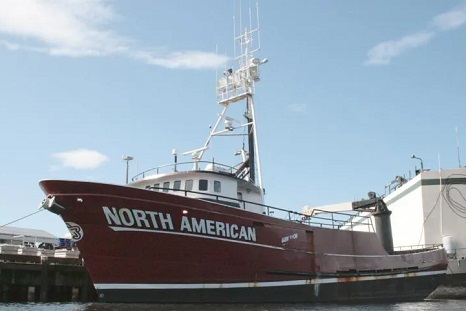
Reducing Fuel Consumption – Crab Boat Catches Huge Fuel Savings
Commercial fishing boats burn hundreds of gallons of fuel simply travelling from home port to destination, then back again. In the case of the F/V North American, a 35-yr old crab boat based in Seattle, running the engine 1025 rpm consumes 42 gal of fuel per hour. Adding substantially to total fuel consumption while in transit is an auxiliary generator, which provides electrical power for lights, accommodations, and other functions. Sten Skaar, captain of the North American, revealed that he now uses a FloScan fuel flow meter to monitor instantaneous fuel consumption of the boat. Instead of a stand-alone generator, the North American uses the Gen-Tech system,,, photos, video>click to read< 10:07

National: Legal Petition Seeks Federal Ropeless Rule to Save Whales, Turtles From Fishing Gear
The Center for Biological Diversity formally petitioned the National Marine Fisheries Service to require crab, lobster and other trap fisheries to convert to new ropeless or “pop-up” gear within the next five years. The petition requests that the agency prioritize the transition in national marine sanctuaries.,, The proposed change would protect whales and other animals from entanglements in California’s Dungeness crab fishery, New England’s lobster fishery, the stone crab fishery in the Gulf of Mexico, and others. >click to read< 07:17


































